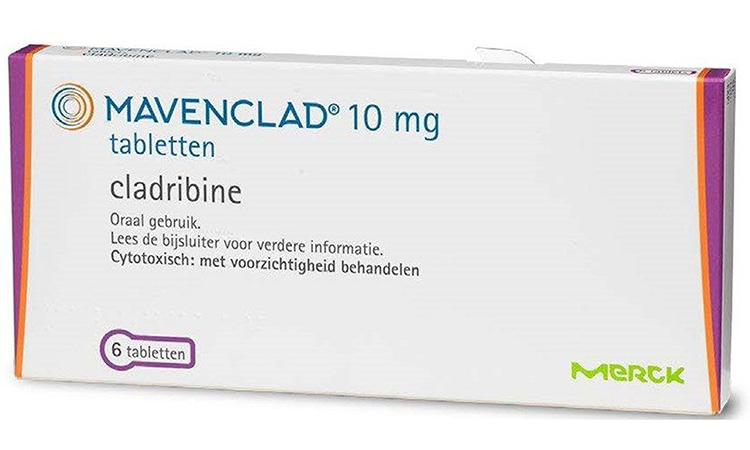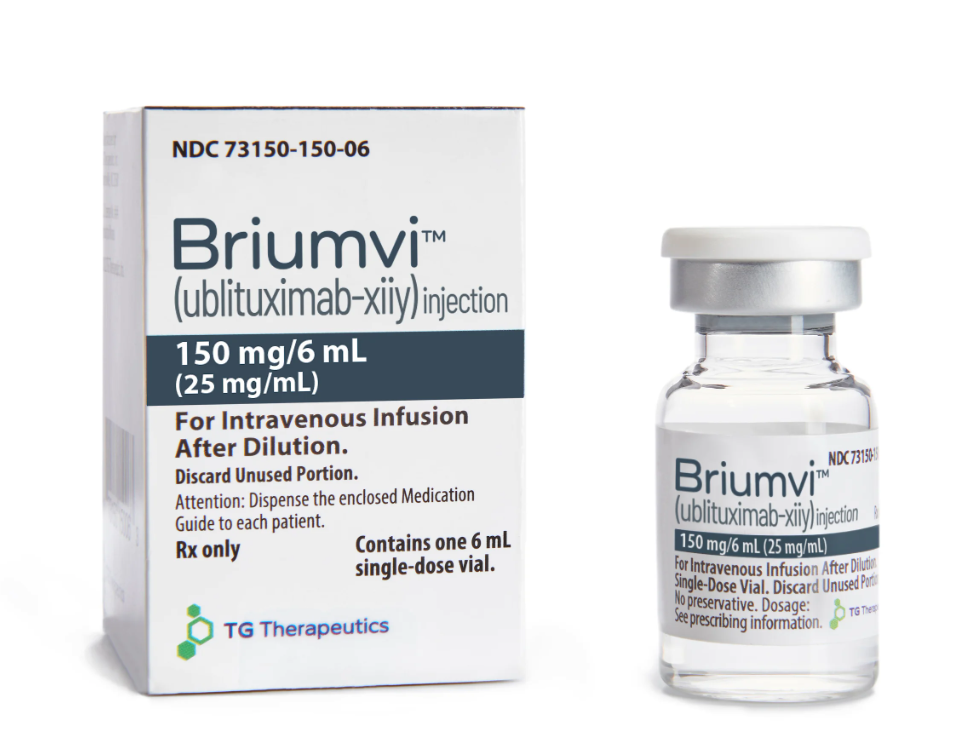Mavenclad (cladribine) vs Briumvi (ublituximab-xiiy)
Mavenclad (cladribine) vs Briumvi (ublituximab-xiiy)
Mavenclad (cladribine) is an oral medication approved for the treatment of relapsing forms of multiple sclerosis (MS), characterized by its dosing schedule that involves taking pills for a few days per month in two treatment courses, one year apart. Briumvi (ublituximab-xiiy), on the other hand, is an intravenous monoclonal antibody therapy approved for the treatment of relapsing forms of MS, administered by healthcare professionals with an initial dosing followed by regular infusions every six months. When deciding between the two, considerations include the route of administration preference (oral vs. intravenous), dosing frequency, and the individual's specific medical history, as well as potential side effects and how the medication's mechanism of action aligns with their treatment goals.
Difference between Mavenclad and Briumvi
| Metric | Mavenclad (cladribine) | Briumvi (ublituximab-xiiy) |
|---|---|---|
| Generic name | Cladribine | Ublituximab-xiiy |
| Indications | Multiple sclerosis (MS) | Relapsing forms of multiple sclerosis (RMS) |
| Mechanism of action | Antimetabolite; purine analog that disrupts DNA synthesis and repair, leading to cell death, particularly in lymphocytes | Monoclonal antibody; targets CD20 antigen on B cells, leading to their depletion |
| Brand names | Mavenclad | Briumvi |
| Administrative route | Oral | Intravenous infusion |
| Side effects | Lymphopenia, leukopenia, infections, liver enzyme elevations, hematologic abnormalities | Infusion reactions, infections, diarrhea, nausea, pyrexia, fatigue, injection site reactions |
| Contraindications | HIV infection, active chronic infections, hypersensitivity to cladribine | Active hepatitis B infection, live or live-attenuated vaccines |
| Drug class | Antimetabolite | Monoclonal antibody |
| Manufacturer | Merck | TG Therapeutics |
Efficacy
Mavenclad (Cladribine) for Multiple Sclerosis
Mavenclad (cladribine) is an oral medication approved for the treatment of relapsing forms of multiple sclerosis (MS), including relapsing-remitting disease and active secondary progressive disease, in adults. Clinical trials have demonstrated the efficacy of Mavenclad in reducing the frequency of relapses and slowing the progression of disability in people with MS. The CLARITY study, a key phase III clinical trial, showed that cladribine significantly reduced the annualized relapse rate by 58% compared to placebo. Additionally, the trial indicated that cladribine led to a reduction in the number of lesions observed on MRI scans, which is indicative of decreased disease activity.
Another important measure of efficacy is the proportion of patients who remain relapse-free. In the CLARITY study, a higher percentage of patients treated with Mavenclad remained free of relapses over the course of the 96-week trial period compared to those on placebo. Furthermore, cladribine has been shown to have a sustained effect on relapse rates and MRI lesion activity, which suggests a long-term benefit for patients with MS.
Briumvi (Ublituximab-xiiy) for Multiple Sclerosis
Briumvi (ublituximab-xiiy) is a monoclonal antibody that is administered intravenously and is designed to target and deplete CD20-expressing B cells, which are believed to play a role in the pathogenesis of MS. While Briumvi is not yet approved for the treatment of MS, it has shown promise in clinical trials. The phase III ULTIMATE I and II trials have been pivotal in demonstrating the efficacy of ublituximab-xiiy in reducing disease activity in patients with relapsing forms of MS. These trials have reported that ublituximab-xiiy significantly reduced the annualized relapse rate compared to teriflunomide, a commonly used oral MS therapy.
In addition to the reduction in relapse rates, Briumvi has demonstrated a significant impact on MRI lesion activity. The number of T1 gadolinium-enhancing lesions and new or enlarging T2 lesions were markedly lower in patients treated with ublituximab-xiiy compared to those receiving teriflunomide. These results suggest that Briumvi could offer a robust therapeutic option for patients with relapsing forms of MS, pending regulatory approval and further post-marketing data to confirm its safety and efficacy profile.
Regulatory Agency Approvals
Mavenclad
-
European Medical Agency (EMA), European Union

-
Food and Drug Administration (FDA), USA

-
Health Canada

-
Therapeutic Goods Administration (TGA), Australia

-
Medsafe (NZ)

Briumvi
-
European Medical Agency (EMA), European Union

-
Food and Drug Administration (FDA), USA

Access Mavenclad or Briumvi today
If Mavenclad or Briumvi are not approved or available in your country (e.g. due to supply issues), you can access them via Everyone.org.
How it works

Make an enquiry
Choose the medicine you want to buy, answer a couple of questions, and upload your prescription to speed things up. We’ll get back to you within 24 hours.


Make an enquiry
Choose the medicine you want to buy, answer a couple of questions, and upload your prescription to speed things up. We’ll get back to you within 24 hours.


Breeze through the paperwork
We'll guide you through the required documents for importing unapproved medicine, ensuring you have all the necessary information.


Get a personalized quote
We’ll prepare a quote for you, including medicine costs and any shipping, administrative, or import fees that may apply.


Receive your medicine
Accept the quote and we’ll handle the rest - sourcing and safely delivering your medicine.

Some text on this page has been automatically generated. Speak to your physician before you start a new treatment or medication.
Let's talk
If you have any questions, call us or send us a message through WhatsApp or email:
Contact us




